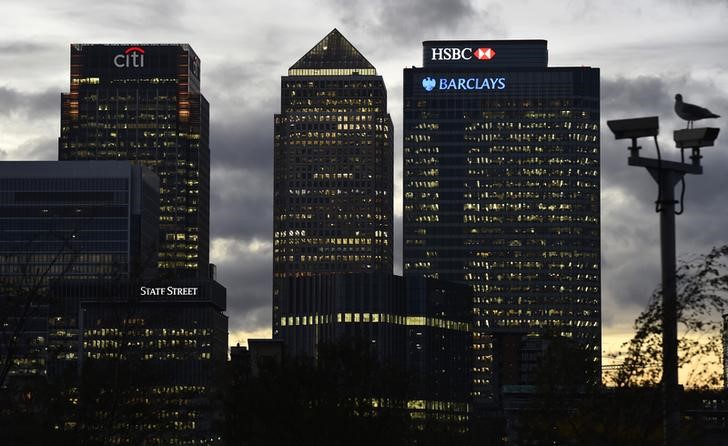By Alexander Smith
DAVOS (Reuters) - Europe's bankers defended the big bank model this week in Davos as the mounting cost of regulation puts a question mark over its future.
Big complex banks must now hold far more capital than in the past because they are seen as posing higher economic risks and they have to be easier to dismantle if they hit trouble. That has hurt their profitability and held back share prices.
JPMorgan (N:JPM), the biggest U.S. bank by assets, has faced growing pressure to consider a break-up, and similar questions are being put to less profitable European rivals such as Deutsche Bank (DE:DBKGn), Barclays (L:BARC) and Credit Suisse (VX:CSGN).
JPMorgan Chief Executive Jamie Dimon last week said splitting his bank would be bad for the financial prestige of the United States, and he won support from his peers at this week's World Economic Forum in Davos.
"Is there a better model? Those of us who are large have always faced questions." said Douglas Flint, chairman of HSBC (L:HSBA), Europe's biggest bank by market value. "If we were asked the same question (as JPMorgan on breaking up) we would give the same answer."
Pressure has built on JPMorgan since it emerged in December that it could require more than $20 billion of extra capital to meet tougher U.S. rules on big banks.
Banks around the globe are having to consider radical ways to cut costs and change their size and shape as they come out of the worst year since 2008 for investment banking revenues and remain under what Dimon called an "assault" from regulators.
In Europe, banks have still not returned to economic profit since the financial crisis, according to a study by Boston Consulting Group.
Many so-called universal banks are being valued by stock markets at much lower than their net worth on their balance sheets, or the 'book value' of their assets.
JPMorgan shares are trading at 0.9 times the bank's book value and Citigroup (N:C) trades on 0.7 times. In contrast, Wells Fargo (N:WFC), which is mostly reliant on U.S. retail and commercial banking, trades on 1.6 times its book value.
Barclays shares trade at 0.7 times book value and Deutsche Bank trades at barely half book, whereas Lloyds Banking Group (L:LLOY), a UK focused retail bank, trades on 1.2 times.
While banks went on the defensive in Davos, behind the scenes changes are afoot.
Deutsche Bank is considering splitting off its retail division and Barclays boss Antony Jenkins has said the universal banking model is dead.
"TOO SMALL TO PROSPER?"
Universal banks benefit from selling asset management and capital markets products to wealthy clients and companies, but bankers admit there are far fewer benefits from cost savings or cross-selling than in the past.
Many corporate clients still wanted strong national or regional firms, however, bankers said.
"We have become a global, multi-product bank because clients want it," Deutsche Bank co-CEO Anshu Jain said during a panel discussion on the future of banking on Wednesday.
Despite brickbats from some politicians, there remains strong support for large national banks in countries including the United States, Germany, France and Italy.
"Shouldn't we have concerns about banks that are too small to prosper?" said Italian Economy Minister Pier Carlo Padoan in response to a question from Reuters on whether banks should be broken up.
Urs Rohner, chairman of Credit Suisse, also saw little merit in splitting firms up. "Breaking up banks will not do anything to make the system safer," he said.
But it is investors who will ultimately call the shots if returns don't improve.
"The pressure to restructure is moving from the public sector to the private sector," said Bob Penn, partner at Allen & Overy in London. "It's a cold, logical, analytical decision that at some point the incremental costs of regulation exceed the costs associated with breaking up."
